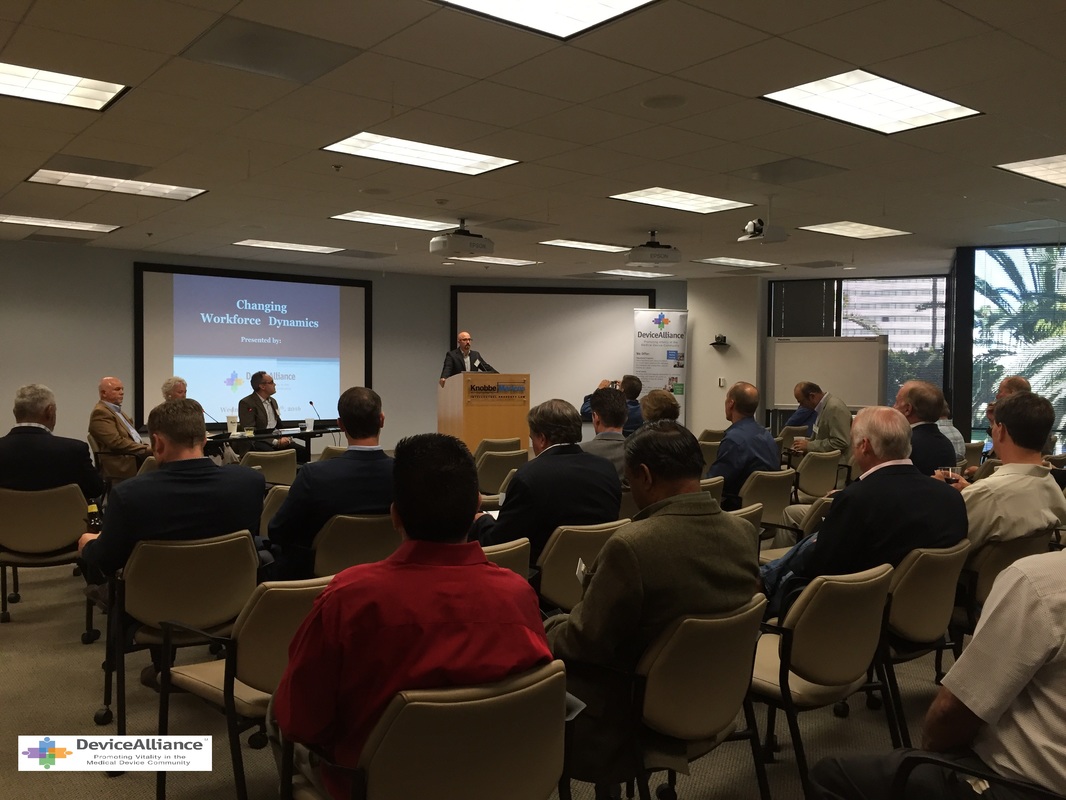|
Being a successful leader often requires a set of skills which are very different than the skills which were needed to be successful in a staff level role. When we are a staff employee, meaning we don’t have any direct reports, our focus is to ensure we do the best individual job possible. Being in a management/ leadership role is very different. While it’s important the manager does a good job, s/he is also responsible for a number of direct reports and therefore is responsible for their contributions as well. The transition to management can either be a dream come true or a living nightmare. Regardless of which camp you may be in it’s important to consider one thing before you make the decision to throw your hat in the ring for the next leadership opportunity: Do you have what it takes to be an effective leader? Before you consider a career in leadership think about how you deal with these five questions: 1. Do You Genuinely Care About Other People? If you don’t care about others or aren’t willing to put others before yourself you’ll never be truly successful in leadership. I choose the word ‘never’ because you may see some success early on however in the long run a lack of genuine care for the people will always bring about challenges which are near impossible to overcome. The best leaders out there, regardless of their titles or the size of the company they work for, view and truly care about the wellbeing of their employees. “Leaders eat last.” – Simon 2. How will you handle ‘The Technician Syndrome’? This is particularly important for people in a technical capacity to consider. The word ‘technician’ refers to a person who is in an individual contributor role focusing on hands-on technical work, such as product development, software development, etc. When you make a transition into management you are stepping away from some or most of your daily technical hands on duties. People who have technical backgrounds, such as engineers and those in IT, tend to struggle with this change as often times their original passion which has guided them to this point in their career was focused on being hands-on in their role, creating, building or testing things. Once you’re in a role of leadership your focus is now more on people, not the product or technology. 3. Are You An Influencer or a Dictator? What is your natural working style when you are in situations where you are working with others? Do you listen, support and coach or are you the type that would rather just tell people what to do? Successful leaders do more listening than they do talking. They understand the importance of giving their people an opportunity to contribute ideas, take risks, do things their own way, etc. Managers that don’t do this have a hard time motivating their employees as they view their employees as workers who are to be told what to do, when to do and how to do their work. 4. Can You Delegate? Can you give someone else an opportunity to take on a project or work? Are you able to allow someone else the chance to take the spot light and recognition? Do you trust others to get the job done? These are all important questions which tie into delegation. Successful leaders delegate frequently because they know firsthand that it isn’t wise or feasible for them to do everything. 5. Are You Willing to be a Shrink? A very real part of management is dealing with people problems, like a shrink would, and working constantly in conflict resolution. This aspect of the job often sends people screaming for the hills as dealing with people problems can be challenging and often viewed as a waste of time in the business world. Successful leaders view the people interaction part of the job as an opportunity for improving themselves and their employees while further developing a deeper relationship. They look forward to the moments to learn from, listen, coach and guide their employees. They do this because they genuinely care about the welfare of their employees both at work and home. If you’re considering going into management take the time to think about how you show up with these five questions on leadership. What’s important to consider is that if you don’t have these intangible skills now can you develop them over time? The answer is most definitely yes, it’ll just take time, patience and a willingness to always be listening and learning. Key Takeaway: If you think or believe "people problems aren't my business and should be kept out of the office" than do yourself a favor and stay away from management career opportunities. Action Item: Write out your answers to these five questions and sit on the information for a week. Share it with 1-2 people close to you. After you've had time to digest the questions and your responses you will have a better idea how you feel about further considering a leadership role. Sometimes the best course of action is to take none at all which means remaining in your individual contributor role a bit longer.
0 Comments
Is the grass always greener on the other side? We quit our jobs with the idea of leaving for green pastures only to find out that the new job we just landed is just as bad if not worse than the last. Yikes! Why does this happen? Simply, we made a decision without fully understanding the ‘why’ behind it. When we’re at a point in our careers where we’re considering leaving our employer typically one or more of the following is happening:
Sound familiar? These are the top five answers people share on why they resigned from their employer. When we’re frustrated at work, especially if it has been going on a while, all too often we’re ready to jump ship without checking first if we have a life preserver on. The first opportunity that comes along meeting our ‘minimum qualifications’ can appear to be a god send. We yell out, “where have you been all my life” as we go through the interview process with our new prospective employer hoping they’ll give us the chance to say “Adios” to our current employer. But wait! How much research and investigation did we do ahead of time to ensure our hopeful new employer is better than the last? Does it meet our needs? Do we even know what our needs are? Here in lies the trap many of us fall into. We convince ourselves that what we have (our job or employer) is crap and anything else that presents itself is therefore exceptionally better than the last. We dive into the new opportunity to get away from the old to find ourselves quickly back into the same situation we were in before. How could this be? (it certainly isn’t our fault because it never is) Sorry to be the bearer of bad news – if you’ve experienced this it is indeed your fault. Now, let’s be fair, maybe no one ever taught you how to go about finding a new job and ensuring it met your needs. If that’s the case consider this first situation ‘my bad’ and moving forward use the following steps to better understand what you need and how to get it with a new job: Step #1: Self Reflection – take time to better understand where your unhappiness comes from. Without knowing this it will be very difficult to improve your situation Step #2: Honesty – are you giving your current job everything you can? If not then you’re putting yourself at risk of running from one issue to another, just at another company Step #3: List Your Expectations – write out a list of 5-10 things you want in a career and employer. Your top #1-3 should be non-negotiable no matter what Step #4: List of New Employers – if you’ve decided it’s time to move on build a list of companies in the area you want to work which meet your needs, at a minimum your non-negotiables. This information can be obtained by speaking with current employees of those companies or reading reviews online. Step #5: Network – this is the biggest misstep of all. Many times we don’t do this which means we aren’t getting a good enough perspective of what is going on within the industry we want to work in. Networking builds our connections and insight for businesses in the area we’re trying to find our next employment. It can also help us land a new gig. Step #6: Confirm Expectations – when you get to the point of interviewing with a new company make sure to ask them how they show up with the list of items you have created that are important to you. Ask every person you meet within the company. If their answers don’t jive with your expectations this isn’t the right company for you. Step #7: Show Up – if you do decide to take a new job with a company that meets your new set of expectations it is imperative that you show up and give them everything you’ve got. 150%. During this time you should also be making mental notes to see if your new employer is in fact upholding their commitments to your expectations. Caution – when you’re new it is a 50/50 split of responsibility where both parties have to come to the table to make the employer/ employee relationship work. Don’t just sit back and expect your new employer to drool all over you and praise you without you showing up in the new job accordingly. Praise, respect and opportunity are earned – never given for free. Unhappy at your job? Looking for a new one? Before you act on it make sure you understand why you’re in your present situation before you get into a new one. Once you know what you want it will be much easier to find the right opportunity rather than the first opportunity. Back in January of this year I was less than a month away from being a first time Dad. To put it bluntly, I was scared! What do I know about raising a kid and how will I show up for our daughter so that she grows up to be a strong and healthy young woman? It’s a daunting thought process for a new parent as there is so much left to the unknown. What I hoped was that I would be able to lean on some of my leadership experiences from my career to get me through the soon to be experience of being a parent. Six months later I’m amazed at what I’ve learned along the way about being a father. Infants have much to teach us as their souls give us a glimpse into perfection. They don’t have a negative bone in their body as their main desire in life is to be loved and cared for. Simple as that. Accomplish that and they’ll love you unconditionally. Along the way I’ve picked up some nuggets of knowledge, which mind you were bestowed on be by an infant, and are now the cornerstone for my focus in business and as a leader. > Caring for others without expectation I’ve learned quickly the importance and result of what happens when you give all of yourself to someone for their benefit and their benefit only. When we do things for people because we’re looking to get something in return it cheapens the relationship as the receiver almost always sees through the other person. What’s amazing is infants have this same perceptive quality. When you care for them unconditionally they love you no matter what. They appreciate and respect your kindness and give it back a thousand times what was originally offered. Leadership is the same way. Put yourself out there for others placing their careers ahead of your own and you’ll have a team of people who happily run through brick walls, achieving great heights along the way. > Patience Even if you don’t have kids you’ve probably heard this…kids require a lot of patience. My whole life I’ve struggled in this area yet through some caring feedback over the years I’ve managed to slowly improve. My daughter requires a whole new level of patience that I’ve never had to deploy before yet I find myself yearning for the opportunity to give it. What you come to realize is that many times people don’t do things on purpose which leads to feeling of being upset, frustrated, irritated, etc which is what can cause people to lose their patience. A lot of times it’s just a simple miscommunication. When we keep this top of mind at work we can approach situations with a calmer, more understanding mindset which alleviates our need to get fired up. > It’s the small things that count It’s so easy to get wrapped up in life, focusing on things that are completely irrelevant to our day or perhaps even the reason for being alive in the first place. I must admit, I struggle with this often. One of the best things I’ve learned from my daughter is most of the worldly challenges I’m faced with are actually quite insignificant and the reality is that some of the smallest things in life are what really makes a difference. A great example is every morning when I go to get her out of her crib (sometimes at a ripe 5:15AM mind you) I’m greeted with the biggest toothless smile you could ever image. It goes ear to ear and immediately puts me in my happy place. It’s moments like these that are great reminders for us that life is not all about spreadsheets, bottom lines and performance reviews. If we take this same approach with our employees at work we’ll find ourselves much more satisfied with our career experience. > The Platinum Rule of Relationships The Golden Rule is the principle of treating others as one would wish to be treated oneself. I’ve learned from my daughter that the ‘Platinum Rule’ is far more effective as the focus is to ‘treat others the way they want to be treated’. If I take the time to do the things which are important to my daughter (like throwing blocks, yelling at trees, bouncing to music or gnawing on the couch cushions) I find she’s far more involved and happy with me than when I have her do something I want to do. (which typically means she’s sitting there supervising me from her Bumbo) This same rule applies to our employees as when we treat them how they want to be treated and not how we ourselves want to be treated it sends a very specific message that we care about them and what’s important to their cause. > FUN While this may sound a little cliché I can assure you it is all too real. I’ve grown up experiencing a life full of grand adventures and silly shenanigans. Let’s just say I’ve had a lot of fun living life yet somewhere along the way I forgot how to have good, honest fun. How to pretend. My daughter reminds me that having fun is a state of mind and should be a source of achievement often. While that may sound daunting and rather tiresome to focus on always having fun I can assure you the other side of the coin sucks royally. When you aren’t having fun life feels like it’s just dragging on by. So now if we aren’t having fun I make an abrupt face change in what we’re doing so that she’s smiling and giggling all over again. Your employees will do the same. If you purposefully make their work environment an enjoyable place to be your employees will enjoy coming to work, rather than having a serious case of the Mondays. Last week I had the honor of moderating a speaking engagement put on by Device Alliance in Irvine, CA. If you aren’t familiar with Device Alliance (DA) it’s a Medical Device industry association whose primary focus is providing a supportive platform for the continued knowledge development and relationship building within the medical device industry in SoCal. The purpose of the event on July 20th was simple – to have an informative discussion on ‘Changing Workforce Dynamics’ surrounding these three topics:
As we got into the meat of the content for the evening I started to pick up on a topic that seemed like it was trending in a fair amount of our conversation.
Is the Medical Device industry attracting younger generations at the rate it should? There seemed to be a fair amount of dialogue and a bit of concern from some people present at the event addressing a discrepancy within the industry as it seemed that new grads weren’t flocking to medical devices like they once had. I can’t substantiate this claim to say ‘yes’ it’s happening, or ‘no’ it isn’t, however it’s a powerful topic to discuss because it’s a potential challenge we face in the near term if in fact it is true. So let’s hypothesize for a moment: If new talent, in particular younger generations, are not entering the medical device industry like they used too, what are the potential cause and effects we’re faced with? CAUSES:
EFFECT:
Is the Medical Device industry attracting younger generations? What are you thoughts? Agree or disagree? Make a Point to Praise5/20/2016 Employee attrition often times can be boiled down to one or two culprits. One of the largest contributors to people leaving their employer has to do with a lack of respect in the workplace. When employees' feel they aren’t valued for their contributions the thought of leaving their boss or their company becomes a daily reality. How can leadership impact their employees, increasing job satisfaction, career happiness and employee initiative? Through PRAISE. If you happen to be in a leadership role (noticed I chose the word leadership and not manager – there’s a big difference) you have the ability to directly influence, in a positive way, the experience your employees have in their jobs. When done with genuine care and appreciation, praise can have the biggest impact on an employees’ performance and mindset and the best part is providing praise is free. Zip, ziltch, nada…nothing out of your pocket or that impressive departmental budget you control.
Recognition in the work place boosts employee confidence empowering them to increase productivity. Rewarding and praising your counterparts or direct reports in front of their peers sends a powerful message that far surpasses any monetary reward. Don't get me wrong, plenty of us enjoy bonuses for a job well done but praise hits at a deeper level than just the pocket book. When employees know they’re respected and appreciated, motivation and individual morale typically surges upward accompanied by an increased positive work environment. If you haven’t read, “How Full Is Your Bucket?”, by Tom Rath and Don Clifton, I would highly suggest doing so. This book highlights the importance of recognition in both the work place and life, providing positive strategies to uplift those around you. 41% of job seekers identified a lack of recognition as the largest contributor to poor productivity, which in turn directly contributes to employee attrition. Two rules of thumb to remember when giving praise: 1) make sure its genuine, and 2) make sure it’s not the flavor of the month. Giving genuine praise when it’s deserved is important to the health of any company and employee. About the AuthorTravis Smith is the founder and managing director of Square-1 Engineering, a medical device consulting firm, providing end to end engineering and compliance services. He successfully served the life sciences marketplace in SoCal for over 15 years and has been recognized as a ‘40 Under 40’ honoree by the Greater Irvine Chamber of Commerce as a top leader in Orange County, CA. Categories
All
Archives
April 2024
|
Visit Square-1's
|
|








 RSS Feed
RSS Feed


